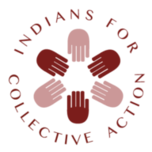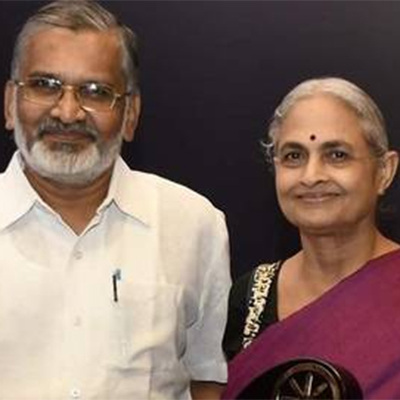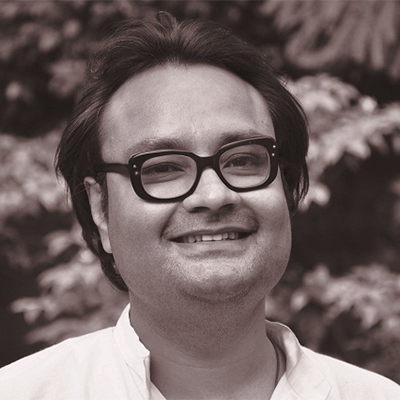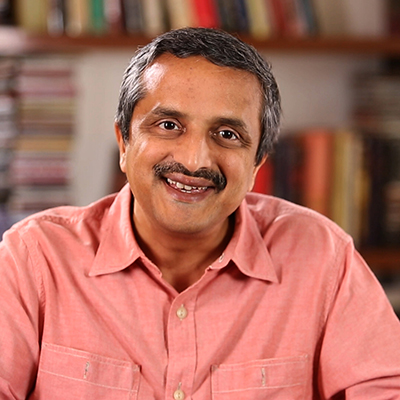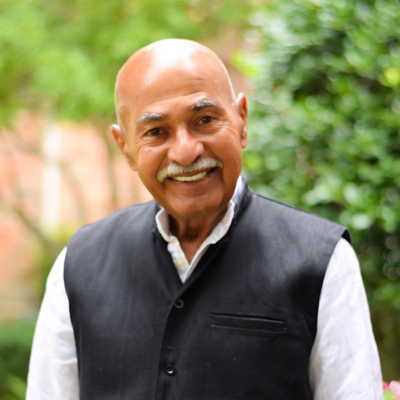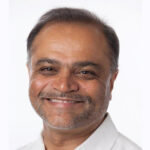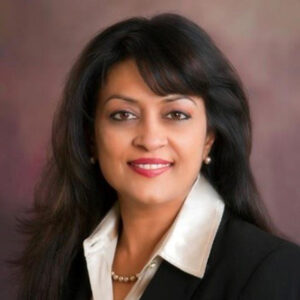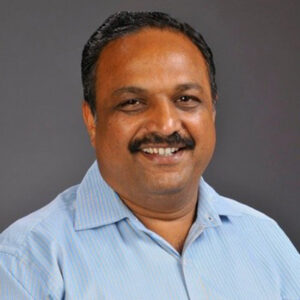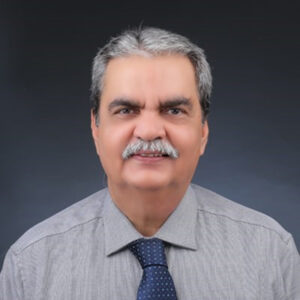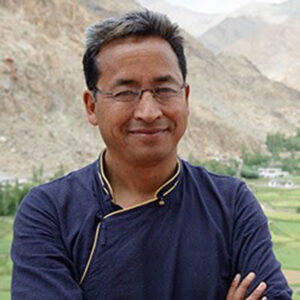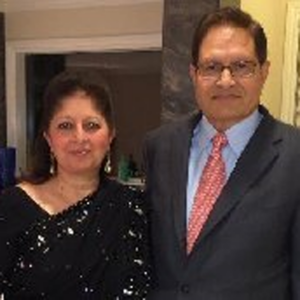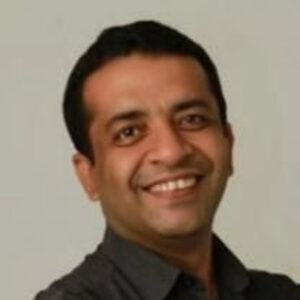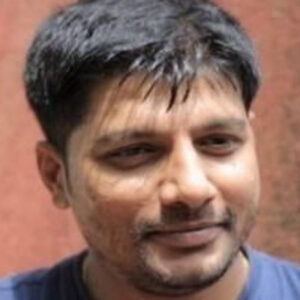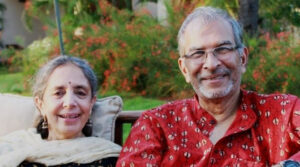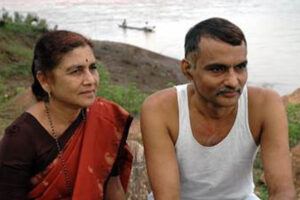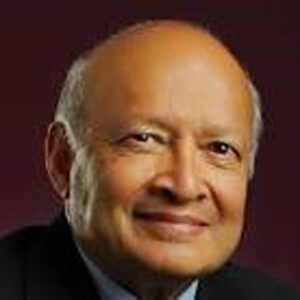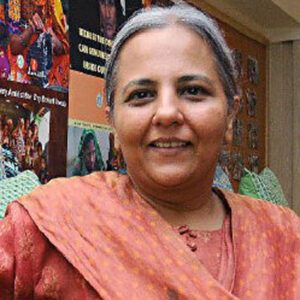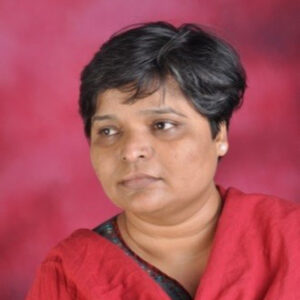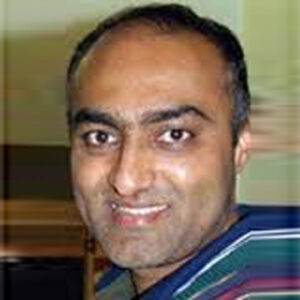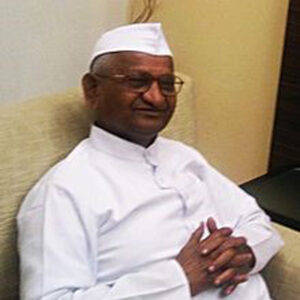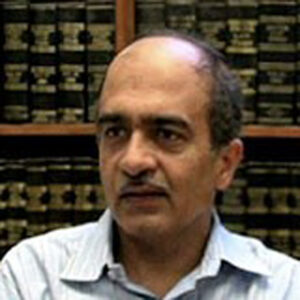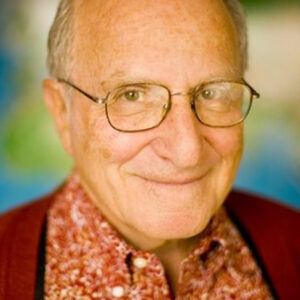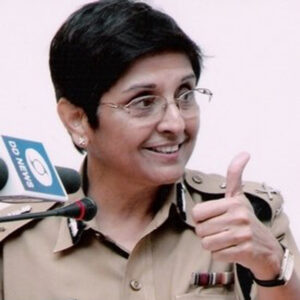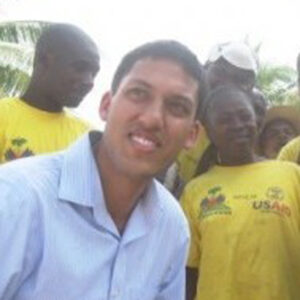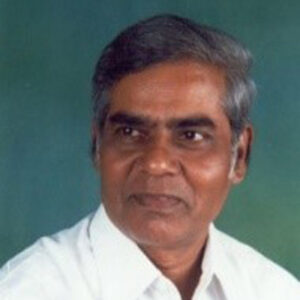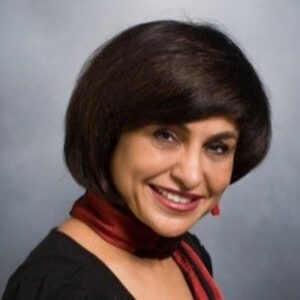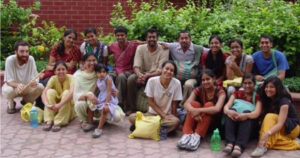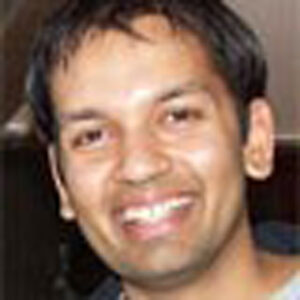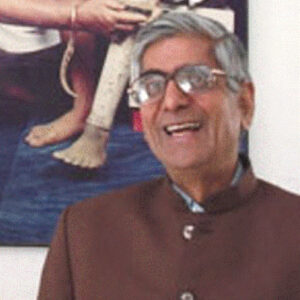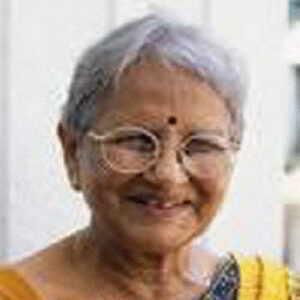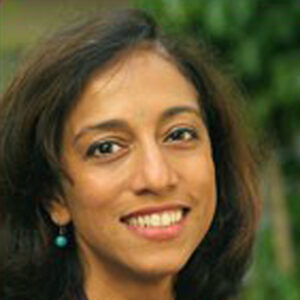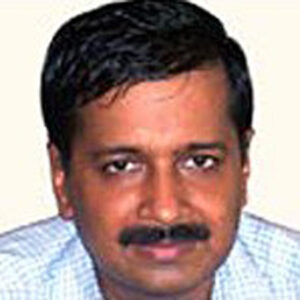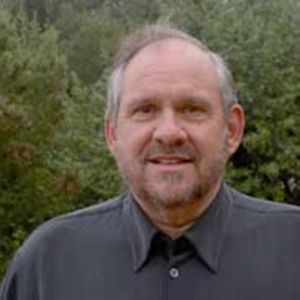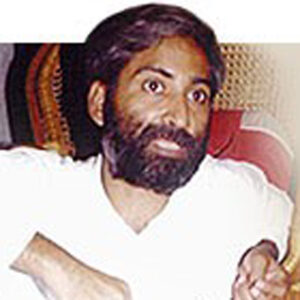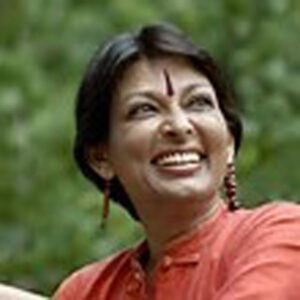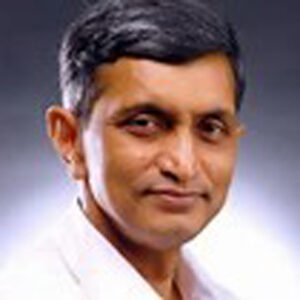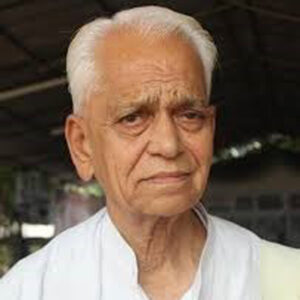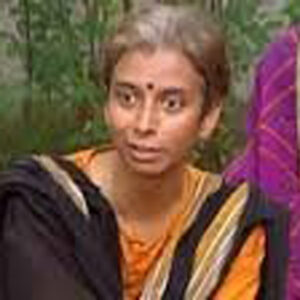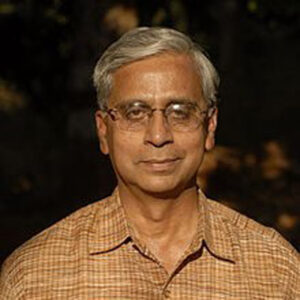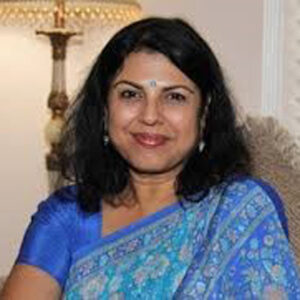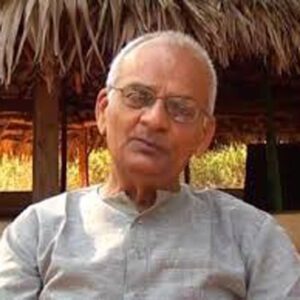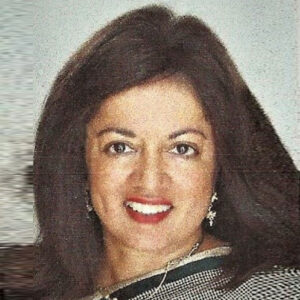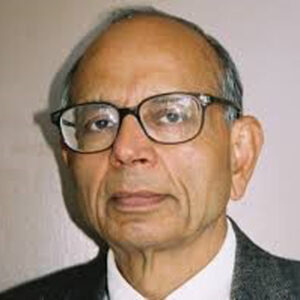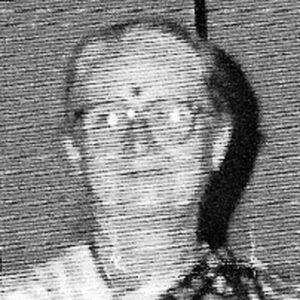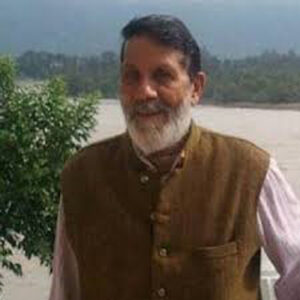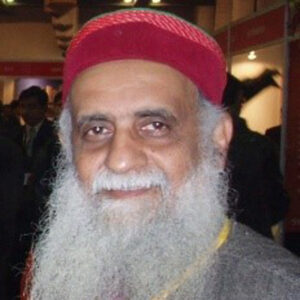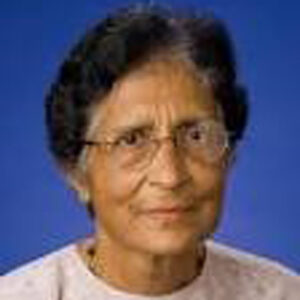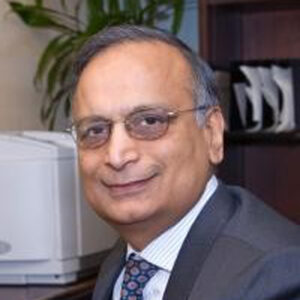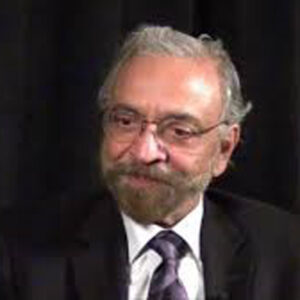Honorees
Honorees
|
Social Activist and Researchers Social activists and researchers Dr. Abhay Bang and Dr. Rani Bang have brought about a renaissance in community-based primary care. |
|
Silicon Valley Debug Silicon Valley's own Dr. Raj Jayadev has worked to change local court systems to give voice to people facing charges, as well as training and supporting their families. |
|
Parivaar Vinayak Lohani, inspired by the humanistic ideals of Swami Vivekananda started his first school with three children now has over 2000 resident children in West Bengal and Madhya Pradesh. |
|
Paani Foundation Satyajit Bhatkal of Satyamev Jayate fame fought against drought in rural Maharashtra. He says water scarcity is a man-made condition, and only people’s efforts can solve the crisis. He uses the power of communication to mobilize, motivate and train people in this mission to eradicate drought. |
|
Naginchandra Jagada
Arpan Foundation Naginchandra Jagada his humble beginnings in Rajkot, Gujarat. He retired after working in Kuwait for 35 years, and now lives in Plano, TX. On retirement in the early 2000, he began to give back to his motherland. What began with a small act of kindness covering the homeless in Rajkot with blankets has now become an annual project that covers various small towns and villages around Rajkot. He visits India every winter and dedicates his trip to donations of food, clothing, footwear, school supplies, groceries, sewing machines, wheelchairs and vehicles for the disabled. Additionally, he organizes a “Divyang camp” where prosthetic limbs are donated and fitted under the guidance of medical professionals. His mission is to help the poorest of the poor and benefit their lives. |
|
Shah Capital Partners Ajay Shah is the founder and Managing Partner of Shah Capital Partners. A technology executive with over 20 years of experience, he founded and managed the Technology Solutions Business of Solectron, a $2 Billion business. He was the CEO of Smart Modular Technologies, a company he co-founded in 1989, led through its public offering in 1995, and acquisition by Solectron Corp. in 1999. He has a B.S. in Engineering from University of Baroda and an M.S. in Engineering Management from Stanford University. Mr. Shah was elected “Entrepreneur of the Year” for Silicon Valley in 1997. He is a senior fellow of the American Leadership Forum and also serves on the boards of KQED Broadcasting, San Francisco, The Indian School of Business, India, a director of National Audubon Society, and is a Trustee of the American India Foundation. |
|
American India Foundation Lata Krishnan is the Co-Chair of the American India Foundation (AIF) since serving as its Founding President in 2001. AIF is a premier foundation with a long-term commitment to accelerating social and economic development in India and strengthening the bonds between the US and India and its Honorary Chair is President Clinton. Lata is a technology entrepreneur, a startup investor and an engaged philanthropist who has extensive experience both in finance and business management, as well as in helping both young companies and non-profits scale innovative ideas to deliver impact. She was also the co-founder of Smart Modular Technologies and lead as its Chief Financial Officer through a public offering. She has also served on the Silicon Valley Bank Board for ten years. She is a member of the Board of Stanford Health Care (SHC), the governing body for Stanford Hospital. She is also a Senior Advisory Board Member of the London School of Economics, South Asia Centre. Lata’s areas of focus include education, at-risk children and families, cacer research and economic empowerment of women. |
|
Snehalaya Girish is a trained journalist and professor with S.P Pune University. He is a pioneer for social change, a visionary and an inspirational leader. Girish holds a doctorate in Political Science and Public Management, as well as two masters in Politics and Sociology. He was bestowed the President of India Award 2012 for his service to his country in the field of Social Work. The flagship project of Snehalaya is to rescue women from domestic and societal violence & exploitation, and to rehabilitate them. One of the projects at Snehalaya is Snehankhur Adoption Centre, that rescues abandoned infants and seeks safe adoptive families for them. Snehalaya operates a compassionate center for unwed mothers and consistently fights for the rights of the women and children under their care. Snehalaya team has reduced the spread of sexually transmitted disease amongst sex workers from 60% to virtually non-existent and eradicated the prostitution of minors. They run a Clinic for HIV patients, especially children. |
|
Shraddha Rehabilitation Foundation Dr. Vatwani is a psychiatrist who also won 2018 Ramon Magsaysay Award for his tremendous courage and healing compassion in embracing India’s mentally-afflicted destitute. He was recognized for his steadfast and magnanimous dedication to the work of restoring the human dignity of even the most ostracized. Dr. Vatwani along with his wife Dr. Smitha, conceptualized and founded Shraddha Rehabilitation Foundation in 1988. This NGO is dedicated to rescue, treat, rehabilitate and reunify wandering mentally-ill destitute from the streets of India with their families. In the last 30 years, Shraddha, under the pioneering leadership of Dr. Vatwani has reunited more than 7000 mentally-ill destitute with their families. Inspired by the legendary social worker Baba Amte, Shraddha set up a huge Rehabilitation Center in 2006 on a 6.5-acre plot of land in Karjat, on the outskirts of Mumbai. At any given time, 120 plus mentally-ill destitute are treated and cared for, before being reunited with their families. |
|
Mr. Sonam Wangchuk
Student’s Educational and Cultural Movement of Ladakh (SECMOL) Mr. Sonam Wangchuk, the founder of Student’s Educational and Cultural Movement of Ladakh (SECMOL) and Founder of HIAL(Himalayan Institute of Alternatives, Ladakh) which inspired the climatic ending in the movie 3 Idiots. He will be here in SF Bay Area on October 28, to receive the 2017 ICA Social Innovator Award (ICA Award Banquet on 28th evening is sold out). Mr. Wangchuk will discuss his ground-breaking innovative work in Ladakh, which increased High School graduation rate from 5% to 70% in a decade; Ice Stupas, Artificial Glaciers, and his current and future projects, as well. |
|
Talat and kamil hasan have been the riving force for the India Community Center They have also been actively working for education and employability of underprivileged girls through Indian NGO Roshni. |
|
Mr. Anshu Gupta
Goonj Mr. Anshu Gupta is an Indian social entrepreneur who founded Goonj, a Delhi¬-based NGO that focuses on rural development. He won the Ramon Magsaysay Award in 2015, for his creative vision in transforming the culture of giving in India, his enterprising leadership in treating cloth as a sustainable development resource for the poor, and in reminding the world that true giving always respects and preserves human dignity. Anshu is an Ashoka Fellow and was conferred with ‘Social Entrepreneur of the Year Award' by the Schwab Foundation in 2012. |
|
Borderless World Foundation (BWF) Mr. Adhik Kadam is co¬founder and director of Borderless World Foundation (BWF), and has spent the last 20 years saving hundreds of girls in the conflict zone in Jammu and Kashmir. His organization now provides a safe shelter and modern education to more than 220 girls. Working despite great personal risk – kidnapped by militants, interrogated by security forces, and subject to fatwas against him – Adhik has won the trust of all through his sincerity, transparency and dedication. He has been awarded the Mother Teresa Award For Social Justice, the Yuwanmesh 2011 Award, the Rotary Excellence Award, The Spirit of Mastek award and Youth Icon by Maharashtra Times Group. |
|
Anudip Foundation Radha Ramaswamy Basu and Dipak Basu launched Anudip Foundation in 2007 to serve poor and marginalized youth through skills development in IT and entrepreneurship. In 2009, they started the Jhumki Basu Foundation to help at¬-risk American students from minority groups by developing in them a deep interest in science. Radha Basu started iMerit in 2012, a social enterprise in human empowered computing that delivers on demand digital services to global clients employing some of the young men and women trained by Anudip. This unique model is being recognized as the Future of Work for marginalized youth and young women. Dipak Basu, a co¬founder of NetHope, a nonprofit tech alliance of the world’s largest aid agencies, is a recipient of the Tech Laureate Award for IT in Humanity, and the President’s Award from Save the Children. |
|
Padmashree Dr. Prakash Amte and Dr. Mandakini Amte
Padmashree Dr. Prakash Amte and Dr. Mandakini Amte have spent 40 years to bridge the gap between the two worlds, that of the beneficiaries of modern science and technology and of the Madia Gond tribals who live on the fringes without basic necessities. They helped the tribal people get educated, establish their rights to their lands and resources, and intervened to mediate disputes and to get abusive government officials removed from the area. Today, the Amtes' tribal area hospital treats forty thousand patients a year, free of charge. Champions for the environment, the Amtes run the popular animal refuge at Hemalkasa, promoting the survival of animals as part of nature's balance. |
|
Dr. Thomas Kailath, Professor Emeritus of Electrical Engineering at Stanford University, has been widely acclaimed for his contributions to science and technology. His numerous recognitions include the IEEE Medal of Honor in 2007 and the Padma Bhushan award in 2009 from the President of India. In 2014, President Barack Obama honored Prof. Kailath with the US National Medal of Science award, for his "transformative contributions to the fields of information and system sciences, dedicated and sustained mentoring of young scholars, and for translation of scientific ideas into entrepreneurial ventures that have had a significant impact on industry.” Professor Kailath has been actively nurturing social entrepreneurs and supporting numerous community and philanthropic initiatives in the United States and in India, including ICA’s Sarah Kailath Women’s Leadership Program. |
|
Nileema Mishra
Nileema Mishra is an activist engaged in rural development in Maharashtra, India. She is one of the youngest recipients of the Magsaysay Award (dubbed as the Nobel Prize of Asia). She donated her Magsaysay award money, received in 2011, to Bhagini Nivedita Gramin Vigyan Niketan (BNGVN) to provide micro-finance to help poor women. In recognition of her work for rural development she was awarded Padmashree by the Government of India in 2013. Micro-financing coupled with logistical support provided to farmers, entrepreneurs and women’s Self Help Groups encourages savings, imparts skills for alternate livelihood, and helps build sanitation systems. Nileema’s initiative has eliminated farmer suicides and empowered rural women in multiple villages in many districts to be proud earning members of their families. |
|
WEA Melinda Kramer co-directs WEA's world-wide work around issues of clean water, food security, climate change, and land protection through strategic investments in grassroots women's leadership. WEA works to build solutions to global environmental challenges by uplifting the leadership of women. WEA’s work in India includes GREEN Foundation, RUPANTAR in Chhattisgarh , Rural Women Upliftment Society (RWUS) in Manipur, People’s Action for Development (PAD) in Assam, Bindrai Institute of Research and Action’s (BIRSA) in Jharkhand and Gorakhpur Environmental Action Group in UP. Rucha Chitnis, the South Asia Program Director of WEA joined Melinda in receiving the award. |
|
Srikanth Nadhamuni
Technology Head, Aadhaar (UID) Srikanth Nadhamuni, Technology Head, Aadhaar (UID) is a former Bay area entrepreneur and a former president of ICA (Indians for Collective Action). He moved back to India in 2002, and together with Nandan Nilekani co-founded the eGovernments Foundation. The eGovernment Foundation created an eGovernance system to improve the functioning of City Municipalities leading to efficient delivery of services to the people. Its products have been successfully deployed in more than 275 Municipalities across the country, including Delhi, Bangalore, Nagpur, and Kanpur. In 2009, Srikanth was appointed as the head of technology for Aadhaar to setup the UID (Unique Identification) Technology Centre in Bangalore, and lead the development and guided the implementationj of the Aadhaar platform. India’s UID or Aadhaar project is the world’s largest National ID project, giving a biometric based ID to each of the 1.2 billion Indian residents. It has the potential to transform the delivery of government services esp. to the rural poor by improving the efficiency of several benefit schemes such as NREGA (National Rural Employment Guarantee Act) and PDS (Public Distribution System). This e-governance project of unprecedented scale and complexity has been driven by a group lead by Nandan Nilekani, chairman UID Authority of India. |
|
Anna Hazare
Anna Hazare is an Indian social activist and prominent leader in the 2011 Indian anti-corruption movement, using non-violent methods following the teachings of Mahatma Gandhi. Hazare also contributed to the development and structuring of Ralegan Siddhi, a village in Parner taluka of Ahmednagar district, Maharashtra, India. He was awarded the Padma Bhushan—the third-highest civilian award—by the Government of India in 1992 for his efforts in establishing this village as a model for others. Anna Hazare started an indefinite hunger strike on 5 April 2011 to exert pressure on the Indian government to enact a strigent anti-corruption law as envisaged in the Jan Lokpal Bill, for the institution of an ombudsman with the power to deal with corruption in public places. The fast led to nation-wide protests in support of Hazare. The fast ended on 9 April 2011, a day after the government accepted Hazare's demands. The government issued a gazette notification on the formation of a joint committee, consisting of government and civil society representatives, to draft the legislation. When government refused to adopt a strong Lokpal Bill, Anna went on another fast and the India against Corruption team unleashed the power of the people, forcing the government and the parliament to adopt a resolution in support of a strong Jan Lokpal Bill. |
|
Prashant Bhushan, an eminent supreme court lawyer and social activist in India, has fought over 500 Public Interest Litigation cases without charging any money, including the recent 2G Scam, appointment of Thomas as Chief Vigilance Officer for India, Doon Valley case, Bhopal gas tragedy litigation, Narmada dam case, and many more to protect the environment, to defend the rights of indigenous people, and to fight rampant corruption in the government and the judiciary. He represents the conscience of the Indian judiciary system, and is leading the fight to stop corruption and to restore people's democratic rights Prashant Bhushan has been defending democratic and people's rights in India all his adult life, starting with fighting against the emergency declared in 1976, and in 1978, at age 21, he authored a related book, "Case That Shook India." Subsequently in 1990, he focused on the issue of corruption in government and authored the book, "Bofors: The Selling of a Nation." He was recently appointed as a member of the committee constituted in April 2011 for drafting the the Jan Lokpal bill. He has been leading the fight to stop corruption and to restore people's democratic rights. |
|
Social Innovator Dr. Paul Polak is the founder of International Development Enterprises (IDE), a non-profit organization that has helped 20 million of the world’s poorest people move out of poverty by making radically affordable irrigation available to small farmers, and opening private sector access to markets to further increase the sale of their crops. For his work in agriculture, Dr. Polak was recognized by Scientific American as one of the world’s leading 50 contributors to science, was named Ernst and Young Entrepreneur of the Year for the western states, and received the Florence Monito Del Giardino award for environmental preservation in 2008. His work has been featured in articles in Business Week, the Economist, the New York Times, Forbes, and National Geographic. In 2009, Polak was named by the Atlantic Monthly in as one of the world’s 27 “Brave Thinkers” willing to “risk careers, reputations, and fortunes to advance ideas that upend an established order” along with Barack Obama, and Steve Jobs. Dr. Polak’s book, Out of Poverty: What Works When Traditional Approaches Fail, has become a leading resource for practical solutions to global poverty. |
|
Dr. Kiran Bedi
Renowned Social Activist and Trailblazer The first woman officer to join the Indian Police Service in 1972, Kiran Bedi pioneered innovative and humanitarian policing, transforming Indian prisons and boldly reducing corruption. Dr. Bedi has represented India in numerous international forums, received the prestigious Magsaysay Award, and is the subject of the 2009 film Yes Madam, Sir. Dr. Bedi also started two non-profit organizations dedicated to prison reform, drug abuse prevention, child welfare and preventive policing. |
|
Administrator, U.S. Agency for International Development Dr. Shah is the highest-ranking Indian American in any presidential administration. As the administrator of USAID, Dr. Shah heads up the US government’s worldwide economic and humanitarian assistance efforts. A medical doctor and expert on health policy and global development, Dr. Shah has broad experience in harnessing innovation to improve lives |
|
Mr. S. R. Hiremath
Samaj Parivartan Samuday (SPS) Mr. S.R.Hiremath is the founder of Samaj Parivartan Samuday (SPS), Dharwad (Karnataka, India) and of IDS. He is a leading advocate for the empowerment of rural poor, self rule, and community control over natural resources. He has lead people’s movements along Gandhian lines, including protection of Tungbhadra river from industrial pollution, protection of forest and other common lands, and Save the Western Ghats March, leading to a people-centric National Forest Policy. |
|
Home of Hope Dr. Nilima Sabharwal founded Home of Hope, a US based charitable organization, that serves over 2000 orphaned and disadvantaged children, helping them become productive citizens. Home of Hope gives financial support to projects all over India, and has also adopted a Project in Berkeley California. Dr. Sabharwal was recently recognized by Chief Minister Sheila Dixit of Delhi for her work in Udyan Ghar, New Delhi. |
|
InSPIRE, India Summer Program Inspiring Reflective Exploration aims at educating and engaging young generation of USA, mainly with South Asian roots, in community development and exposing them to Indian culture. With initial focus on health, environment, education, community development, women empowerment and e-Governance, InSPIRE is working with ICA to help young volunteers engage in social service work in India. Receiving the award on behalf of InSPIRE were Mr. Raj Kanani and Ms. Asha Patel. |
|
Madhu Purnima Kishwar
Madhu Purnima Kishwar is a Senior Fellow at the Centre for the Study of Developing Societies in Delhi. She is also the Founder President of Manushi Sangathan, an organisation committed to strengthening democratic rights and women's rights in India. She is the founder editor of Manushi - A Journal About Women and Society, which has been published continuously since 1978. A recent focus of her work has been on the unfair laws and regulations governing the livelihoods of urban self-employed poor--street vendors and cycle rickshaw pullers. |
|
Nipun Mehta founded Charityfocus in 1999, an incubator of charitable giving and service projects, based on strong values and principles that emerged from Nipun’s experiments in the joy of giving. Charityfocus principles are to do small things, and be all volunteer run. In 2001, Nipun left his job as a software engineer to devote full time to being the change he wished to see in the world. In 2005, Nipun embarked on a 1000 km journey on foot through India, living on a dollar a day. He is a leading voice for the power of “social capital" and has inspired hundreds of young people in making our world a better place. |
|
Mr. D. R. Mehta
Bhagwan Mahaveer Viklang Sahayata Samiti (BMVSS) Mr. D. R. Mehta is the founder of the Bhagwan Mahaveer Viklang Sahayata Samiti (BMVSS) or Jaipur Foot Factory that invented and provides the Jaipur Foot, a low cost prosthetic, cosmetically and functionally close to the human limb, to millions of poor disabled people. The main objective of the BMVSS is the physical, economic and social rehabilitation of physically challenged, particularly the resource-less, enabling them to regain their mobility, self-respect and human dignity. |
|
Mrs. Inderjit Khurana, the Founder and Director Ruchika Social Service Organization (RSSO), Orissa was also featured on "Meet the New Heroes" program of PBS for her work on "Train Platform Schools". Mrs. Khurana was an Ashoka fellow and the recipient of the 2004 National Award for Child Welfare and the 2006 Henry Derozio Award, founded Ruchika Social Service Organization (RSSO) in 1985. Ruchika operates more than a hundred schools and two phone help lines, a shelter for homeless children, a water and sanitation program, and an AIDS awareness program. For many decades, Ruchika has been helping the poorest, most vulnerable children who live and work on station platforms, based in Orissa, and was recently a finalist for the prestigious 2007 World's Children's Prize. RSSO believes that every child has a right to education, and has dedicated itself to the ideal that "if a child cannot come to school, then the school must come to the child." RSSO serves over 4,500 marginalized street and slum children in Bhubaneswar, Orissa. |
|
Global Fund for Women The Global Fund for Women situated in San Francisco is the world's largest foundation solely dedicated to women's human rights. It advocates for and defends women's human rights by making grants to support women's groups around the world including India. The GFW believes that women should have a full range of choices, and that women themselves know best how to determine their needs and propose solutions for lasting change that is reflected in a flexible, respectful and responsive style of grant making. The Global Fund makes grants to seed, strengthen and link women's rights groups based outside the United States working to address human rights issues. Since 1987 GFW has awarded over $58 million to more than 3,450 organizations in 166 countries. Kavita Ramdas will be accepting the award on behalf of GFW. |
|
Mr. Arvind Kejriwal
Parivartan Arvind Kejriwal, an alumnus of IIT (BT/ME/89/IITKGP), who founded the Indian NGO Parivartan that is fighting corruption in India (http://www.parivartan.com/Home.asp), has been given the award for his contribution to the landmark Right To Information law in India and for "activating the right to information movement at the grassroots". The nationwide law is aimed at increasing transparency in public life and helping curb corruption. Mr Kejriwal, a former tax officer, has also led an anti-graft campaign in the capital, Delhi. He reminds Indians that "the boons of collective action, such as the honest delivery of services, have already been paid for through taxes." In March 2006, Arvind received the Satyendra K. Dubey Memorial Award, instituted by IIT Kanpur for displaying highest professional integrity for upholding human values. He was one of two prominent South Asians who were awarded this year's prestigious Ramon Magsaysay award. |
|
Dr. Lawrence (Larry) Brilliant, a medical doctor, epidemiologist, technologist, activist, and author is being recognized for his contributions to international health and in starting the Seva Foundation whose projects in India and other countries have given back sight to more than 2 million blind people through surgery, self sufficient eye care systems, and low cost manufacturing of intraocular lenses. Dr. Brilliant lived in India for ten years, first at a Himalayan monastery studying with Neem Karoli Baba, and later as a diplomat working for the United Nations. He was one of the leaders of the successful World Health Organization (WHO) smallpox eradication program. Larry, a technology patent holder, has been CEO of two public companies and other venture backed start ups. He spent the first half of 2005 as a volunteer helping out in the tsunami in Sri Lanka and working in India with WHO in the campaign to eradicate polio. In 2005 he was awarded the TED Prize. As his prize nominator summed up, "'Dr. Brilliant' is a name to live up to, and he has." In February 2006, Google appointed him as the Executive Director of Google.org, the philanthropic arm of Google. |
|
Sandeep Pandey
Founder, Asha for Education In 1995, Sandeep Pandey quit his job at the Indian Institute of Technology-Kanpur, and plunged into working for Asha -- an education program for underprivileged children. His years of dedication brought him the Ramon Magsaysay Award-- the Asian equivalent of the Nobel Prize. At 37, he was the youngest Indian to have been conferred with the award. The award committee's citation, drawing parallels between Pandey and Gandhi himself, ends with these words - "the board of trustees recognizes the empowering example of his commitment to the transformation of India's marginalized poor." It was in the summer of 1991 that Pandey, along with two other friends, founded Asha for Education during his student days at the University of California, Berkeley. Today, the organization has 35 chapters in India, USA and several other countries. Sandeep Pandey devotes his energies entirely to his activist causes, including communal harmony. At the Asha ashram near Lucknow, he has created a learning environment where students live and study among working communities of artisans and learn trades in addition to their R's. The ashram works to overcome caste barriers that dalits face, publicizes official corruption in the local areas, and develops appropriate technologies for the rural region. ICA helped Sandeep start Asha, and has helped support many of his numerous endeavors in India, including India Pakistan Peace March. |
|
Dr. Mallika Sarabhai
Dr. Mallika Sarabhai is one of India’s leading choreographers and dancers, a PhD in organisational behavior, has been the co-director of the prestigious arts institution, Darpana Academy of Performing Arts, for several decades. She is a social activist and champion for humanrights and the economically and socially disadvataged people. As an activist for societal education and women’s empowerment, Mallika has been using her work for social change. In 1989 she created the first of her hard-hitting solo theatrical works, Shakti: The Power of Women. Since then Mallika has created numerous stage productions which have raised awareness, highlighted crucial issues and advocated change, several of which productions have toured internationally as well as throughout India. |
|
Dr. Jayaprakash Narayan
Dr. Jayaprakash Narayan, physician by training and former member of the Indian Administrative Service is the founder of Lok Satta Party,and is also the founder and General Secretary of Foundation for Democratic Reforms, an independent public-policy think-tank and research-resource centre. A former Indian public administrator, well known for his role in electoral reforms and the Right to Information (RTI) act. He has also written columns in Indian newspapers, such as Times of India, The Economic Times, Financial Express, The Hindu and Eenadu, and hosted television shows covering elections and politics such as "Pratidhwani". Narayana's experience in the government convinced him that the faulty governance process is the biggest hurdle in India’s path of progress and Indians achieving greater success. What India needs today is a fundamental change in the rules of the game and not a periodic change of players. In order to translate his vision into practical reality, he resigned from the I.A.S in 1996 so that he could work on the grassroots movement for good governance. Narayan talked about the efficacy of reforms in the governance and Economy of Andhra Pradesh among several other issues on various platforms in educational and political institutes. He emphasizes that democracy is for the people, of the people and by the people. |
|
Dr S.N. Subbarao
Gandhi Peace Foundation Dr. Subba Rao, "Lifetime Worker" of the Gandhi Peace Foundation, joined the freedom struggle as a schoolboy, through the Quit India movement. Since then he has dedicated his life to inspiring youth to participate in the process of nation building. He believes in creating youth-oriented programs that cut across political and religious barriers to promote national integration. He leads youth camps in India and the United States, including the Gandhi Youth Camp in California. Dr. Subba Rao has also been instrumental in organizing the surrender of hundreds of dacoits in Madhya Pradesh, Uttar Pradesh and Rajasthan, and has been instrumental in rehabilitating the dacoits' families. |
|
Kutch Mahila Vikas Sangathan Ms. Sushma Iyengar, chairperson of Kutch Mahila Vikas Sangathan, Gujarat, passionately believes in the power of rural communities to organize themselves against a "dependency mentality." Since 1989, She has been working 'with women's' collectives in 160 villages on handicrafts, micro-credit, environment, legal aid, health, and education. In 1998!,. Sushma helped create Abhiyan, a network of 21 N GOs, which collaborate on disaster mitigation and drought proofing work. Following the earthquake, Sushma showed exemplary leadership in supporting villagers retake control of their lives and livelihoods, in contrast to the usual charity approach to relief Sushma's recurrent theme of empowering villages has found resonance with many of her supporters, including American India Foundation (AlF) chaired by former President Clinton. |
|
Dr. Hanumappa Sudarshan
Dr. Hanumappa Sudarshan is an Indian social worker and tribal rights activist. He is well known for his contributions to the upliftment of the forest dwelling tribes (mainly Soligas) in Chamarajanagar district of Karnataka. He is an Ashoka fellow, a recipient of the Right Livelihood Award, the Padma Shri Award, and Mother Teresa Award for Social Justice. Instead of pursuing a medical practice in the cities, he decided to work with tribal communities and in 1980, he started the Vivekananda Girijana Kalyana Kendra for the integrated development of the tribals in the Chamarajanagar district of Karnataka. He is also the founder and Honorary Secretary of the Karuna Trust, which is dedicated to rural development in the states of Karnataka and Arunachal Pradesh. He claims inspiration from the man-making and nation-building ideals of Swami Vivekananda. He advocates Gandhian ideals for rural development. |
|
Ms. Chitra Banerjee Divakaruni is a co-founder and former president of Maitri, a helpline founded in 1991 for South Asian women dealing with domestic abuse. Divakaruni serves on its advisory board and on the advisory board of a similar organisation in Houston, Daya. She also serves on the emeritus board of Pratham Houston, a non-profit organisation working to bring literacy to disadvantaged Indian children. is an Indian-American author, poet, and the Betty and Gene McDavid Professor of Writing at the University of Houston Creative Writing Program. Her short story collection, Arranged Marriage won an American Book Award in 1995, and two of her novels (The Mistress of Spices and Sister of My Heart) as well as a short story The Word Love were adapted into films. Mistress of Spices was short-listed for the Orange Prize. Currently, Sister of My Heart, Oleander Girl, Palace of Illusions, and One Amazing Thing have all been optioned to be made into movies or TV serials. Divakaruni's works are largely set in India and the United States, and often focus on the experiences of South Asian immigrants. She writes for children as well as adults and has published novels in multiple genres, including realistic fiction, historical fiction, magical realism, myth and fantasy. |
|
Dr. Parmeswara Rao
Dr. Bhagavatula Venkata Parameswara Rao, the moving spirit behind the trust, had been involved in rural development well before that since 1967. After getting a Ph.D. in nuclear sciences from the USA in 1967, Dr. B.V.Parameswara Rao returned to his native village Dimili, with the sole objective of doing something for the people of his village. Armed with enthusiasm and energy as his only strengths and undaunted by the obstacles ahead, Dr. Parameswara Rao started his missionary work by first motivating the villagers in and around Dimili to build a high school for children. After getting well designed spacious building built for the school, formally on people’s contribution and making it the state’s best run school for a decade, he applied himself with missionary zeal towards the vision of a prosperous and all round flourishing rural India. Since then his pioneering and trend-setting experiments have won him and his colleagues world wide recognition. His services were sought as Consultant by the World Bank and as a member of various missions of Government of India including National Literacy Mission, National Waste Land Development Board, All India Khadi and Village Industries Board and National Institute of Rural Development. Since its inception, BCT has come a long way in its experiments in different aspects of development work and has been recognized as one of those few organizations that are effective at the grass root level in villages covered by them. The many important visitors to BCT include the governors of the state, ministers, world bank teams, heads of public undertaking and other distinguished professionals and intellectuals. |
|
Ms. Albuquerque served as the Berkeley City Attorney for twenty-two years - the longest tenure of any city attorney in Berkeley’s history, garnering numerous awards for her outstanding work. She advised the Berkeley City Council, Housing Authority, City Manager and staff, and over forty, nine-member City boards and commissions, while also litigating cases at every level of state and federal courts. She personally litigated some of Berkeley’s most significant cases and filed amicus briefs on behalf of cities and counties in many important cases. In 2007, Albuquerque received the California Lawyer of the Year award in the landmark civil rights decision of Evans v. City of Berkeley 38 Cal.4th 1 (2006) - the California Supreme Court found that Berkeley’s non-discrimination condition on Marina berthing subsidies did not violate the subsidy recipient’s freedom of expression. The same year, Ms. Albuquerque also won the Top Women Litigator’s award for her skilled advocacy in the Evans case. In 2004, Albuquerque won a landmark decision, RUI One Corporation v. City of Berkeley 371 F.3d 1137 (9th Circuit 2004) in which the United States Court of Appeal for the Ninth Circuit upheld Berkeley’s Living Wage ordinance governing large businesses at the Berkeley Marina, concluding that the ordinance neither constituted an unconstitutional impairment of the plaintiff restaurant’s ground lease with the City nor denied it equal protection. In 2005, Ms. Albuquerque was named the Public Lawyer of the Year by the California State Bar’s Public Law Section for her many years writing papers on public lawyer ethics, including coauthoring the city attorneys ethics guide entitled “Practicing Ethics” and the city attorney guidelines, “Ethical Principles.” Ms. Albuquerque served as President of the City Attorneys’ Department of the League of California Cities, from 1994 to 1995 and was a member of the League Board of Directors representing city attorneys from 2003 to 2005. She has also been a member of many important city attorney committees and task forces grappling with urgent and complex issues facing cities. |
|
Prof. P.K. Mehta
Dr. P. Kumar Mehta, Professor Emeritus, University of California, Berkeley, has been an inspiration to a whole generation of Indian activists, since 1965 when he started the Front for Rapid Economic Advancement (FREA). In 1968, Dr. Mehta with others started Indians for Collective Action (lCA), with chapters nationwide, serving development projects in India. Dr. Mehta developed techniques of energy saving and waste material utilization in the manufacture of cement. For this work he received many patents and awards, including the Wason Medal of Research in 1988. In 1993, Dr. Mehta was honored with the Chancellor's citation for his work as Director of Education Abroad Program at U.C. Berkeley. In 1996, Prof. Mehta started the Himalaya Foundation, dedicated to sustainable development in India. On his retirement from U C Berkeley in 1993, after 30 years of teaching and research in concrete technology, he was awarded the Berkeley Citation - the highest campus honor for contributions to his field and to the University. In 2006, he received a Lifetime Achievement Award from the Coal Combustion Products Partnership in recognition of his outstanding research for decades on the use of fly ash in structural concrete. He was also elected an Honorary Member of the American Concrete Institute. He is a member of the ACI Board Advisory Committee on Sustainable Development. |
|
Ms. Shyamala Hiremath, a native of Chicago, moved to India with her husband S.R. Hiremath in 1979 and began a comprehensive program of rural development. Since 1984, she has been directing the work of India Development Service (IDS, India) in Karnataka, which supports over a hundred villages in the areas of education, health, rural industries, wasteland and watershed development, community organizing and micro-credit. During the past two decades, Shyamala and her team of eighty workers have made a real difference in the lives of people in Karnataka. After two decades of living and working in the villages of India, she has not looked back on her decision to serve the people in her adopted homeland. |
|
Sri Chandi Prasad Bhatt
Chipko Movement to save the forests Chandi Prasad Bhatt, a 1992 winner of the Ramon Magsaysay Award for Community Leadership, is from a small village in Chamoli District, Uttarkhand. Chandi Prasad Bhatt became one of the few villagers to complete the high school diploma. He became interested in the non-violence movement of Gandhi and joined Vinoba Bhave's Bhoodan (Gift of Land) movement. Bhatt-ji is best known as the father of Chipko Andolan known as "Hug the Trees Movement" in the west. Chipko is one ofthe few environmental strug¬gles that has a large number of village women participating in, and indeed leading, the movement. His concern for the environment was initiated when he participated in rescue operations after landslides and flooding on the Alaknanda river. He analyzed the mishaps and concluded, with his col¬leagues ofDasholi Society for Village Self Rule (DGSM), that these dam¬ages were linked to previous deforestation in Uttarkhand. His struggle to save the environment and access to forest produce by the tribal people included reforms ofthe existing forest policy; planting appro¬priate trees by villagers, often with the participation of the forestry "Forest dwellers cannot be prohibited by law from satisfying their basic needs from the forests ... unless we framework in which forests and people can live together, one or the other will be destroyed", he said at an conference in Kenya. |
|
Founder, People's Science Institute Dr. Ravi Chopra is the founder of People's Science Institute, Uttar Pradesh. After completing his doctorate in Material Science from Stevens Institute of Technol¬ogy, Hoboken, New Jersey, he moved to India and plunged into the task of nation building. Under his leadership, a team of young scientists and social workers have come together and experi-mented with innova¬tive strategies to address the issues of environmental degra¬dation, droughts and other disasters. They. have successfully integrated traditional practices and scientific technology to develop a unique watershed approach as an alternative to big dams. Dr. Chopra firmly believes in harnessing peoples' initiative and participation for sustainable develop-ment. He is actively involved in Nayi Azadi Andolan, which is based on the principle of 'From Self Trans¬formatipn to Global Transformation.' |
|
Dr. Jyoti (Sulochina) Lulla, a medical doctor from the San Francisco bay Area has been the Project Leader and Camp Director for the Gandhi Youth Camp since 1986. Her dedicated service has benefitted hundreds of young men and women over the past decades. She has also helped the work of Dr. S. N. Subbarao (the founder and leader of Gandhi Camp) by raising funds for His National Youth Project in India. |
|
Dr. Prabhu Goel and Mrs. Poonam Goel
Dr. Prabhu Goel and Mrs. Poonam Goel started the Foundation for Excellence (FFE), to benefit bright students who could not afford a quality education in India. FFE has become one of the largest scholarship donors in India. Prabhu is an entrepreneur and philanthropist, and is one of the largest contributors to his alma mater, Indian Institute of technology, Kanpur. He has set up "Poonam and Prabhu Goel Chair" at the Department of Computer Science and Engineering at IIT Kanpur in the area of Internet Space,[and the "Prabhu Goel Research Centre For Computer & Internet Security". He was a founding member of TiE (The Indus Entrepreneur) the largest organization of entrepreneurs in the world, with chapters in 42 countries. |
|
Dr. Suhas Patil and Mrs. Jayashree Patil
Dr. Suhas Patil is an entrepreneur and philanthropist. He founded Cirrus Logic, a fabless semiconductor company, taking it public. He and Mrs. Jayashree Patil have been active in supporting community activities both in India and in the United States. Patil co-founded the global not for profit organization, the TiE – The IndUS Entrepreneurs in 1992, together with successful entrepreneurs and businessmen of Indian origin in Silicon Valley for nurturing and mentoring entrepreneurs and young companies, serving as TiE's first president. As a gift to the Massachusetts Institute of Technology, Patil awarded $1.5 million for the construction of the Suhas and Jayashree Patil Conference Center at the MIT Stata Center. He also served on the boards of The Tech Museum and the World Affairs Council of Northern California. |
